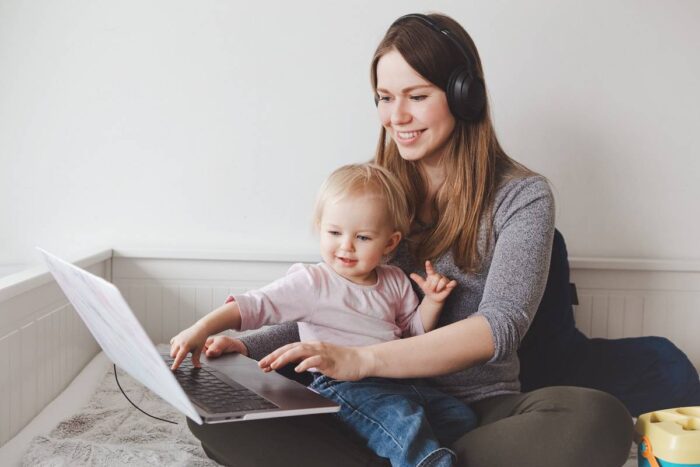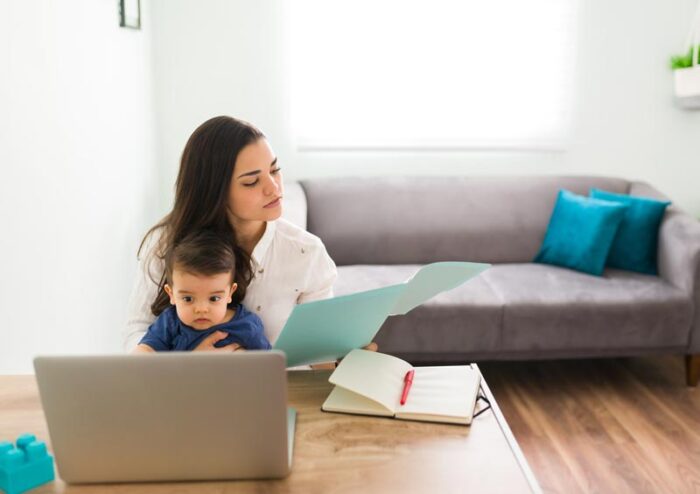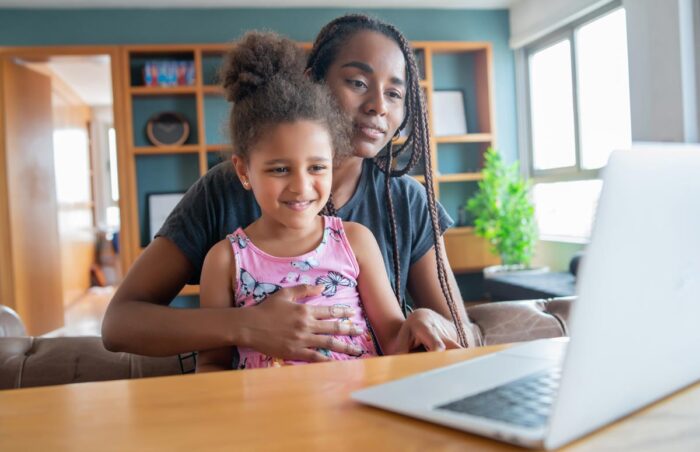Single mothers raise children independently and support them financially. Fortunately, government financial assistance is available for those who face financial problems. If you're a single mom struggling to get by, read about different single mom assistance programs and how to qualify for them.
The lack of support is one of the most difficult aspects of being a single parent. Your family's basic needs must be provided for, but you should also work hard to make sure you provide enough. When single mothers are in such a situation, they turn to government assistance programs.
Single Mom Government Assistance Programs Available
When finances are tight, single mothers who need assistance most can benefit from the following single mom government assistance programs. Several government assistance programs will be discussed in the following section.
People may be eligible for assistance if they meet certain criteria based on the program and where they live. When applying, identification, income proof, proof of residency, and past-due bills are the most common documents required.
Food Banks
Most food banks are private non-profit organizations that provide meal assistance to single mothers. Thanks to donations from local businesses, individuals, and restaurants, you and your children can stock up on healthy food. Search Feeding America or Food Pantries for a local food bank if you are searching for food assistance for single mothers.
HUD Public Housing
Low-income families can live in public housing and enjoy a decent and safe environment. At the same time, families with elderly relatives may live in both single-family homes and high-rise apartments in public housing.
Families and individuals who qualify must have a low annual gross income and be U.S. citizens or eligible immigrants. You and your family's references will be checked by a public housing agency if you are eligible. The project will deny any applicant whose habits are deemed likely to harm other tenants or the environment. If you are interested in applying for a voucher, contact the local Public Housing Agency (PHA).
Local Religious Organizations And Charities
Single mothers can get help from religious outlets and charities by using shelters, food pantries, and clothing. Compared to government assistance for mothers, their services may be more accessible to single mothers. It is still likely that you will be asked for some information, such as your income sources, but the amount will probably be less than you would expect. You can check for charities in your area via GuideStar or contact your local United Way and YWCA offices for help.
LIHEAP Energy Assistance
As part of the LIHEAP program, the government helps people pay their utility bills. Apart from weatherizing your home, they also help you reduce energy consumption by insulating and cooling it.
Additionally, it assists individuals, families, and single mothers who can't afford to pay their home energy bills. Heating and cooling energy assistance may be available to those who meet LIHEAP eligibility criteria. Information about the requirements can be obtained from your state or local LIHEAP office. Its contact center may also be able to assist you. To learn more, contact 866-674-6327 or visit their website.
In order to qualify, households must earn up to 150% of the federal poverty guideline (FPG) or 60% of the state median income (SMI). Furthermore, the income eligibility level cannot fall below 110% of the FPG.
Head Start and Early Head Start
Children aged five and under are helped to prepare for school through Head Start, a federally funded program administered by the Department of Health and Human Services. Early Head Start programs provide services to pregnant women, toddlers, and infants. Applications for the programs must be submitted to your local center. You can use a tool on its website to locate Head Start programs. The Service Center can be reached at 1-886-763-6481 or by visiting their website.
Scholarships For Single Moms
With the rising costs of education, earning a degree can be extremely time-consuming and expensive while raising children. Returning to school may boost your career prospects, increase your earnings, and improve your job security. Grants and scholarships are available to single moms for furthering their education plans.
There are no specific grants available to single parents through the U.S. Department of Education. However, your state may offer them. Ask the college or university in your area if they offer grants and scholarships. Single moms can also apply for the following:
TEFAP Grants
In addition to providing emergency food assistance free of charge, the Emergency Food Assistance Program (TEFAP) supplements the diet of low-income Americans, including elderly individuals with USDA Foods. State governments receive food depending on the number of unemployed and low-income residents in their area. Local agencies distribute the food to local organizations that directly serve the public, such as soup kitchens and food pantries. Furthermore, the state provides food directly to low-income households through community action agencies.
Supplemental Nutrition Assistance Program
Individuals, single mothers, and low-income families can receive Supplemental Nutrition Assistance Program assistance purchasing food. With the help of state agencies and partners, SNAP helps provide proper nutrition to Americans.
Federal nutrition aid is provided primarily through SNAP. Individuals and families receiving SNAP benefits receive them via an Electronic Benefits Transfer card. To purchase eligible food in authorized retail food stores, you can use this card like a debit card.
USDA Child Nutrition Programs
Various nutrition programs are available through the United States Department of Agriculture to provide nutritious meals to children. These nutrition assistance programs include:
- National School Lunch Program: Federally assisted meal programs operate in public schools, nonprofit private schools, and residential childcare facilities under the National School Lunch Program (NSLP). During the school day, the program provides children with nutritious, low-cost, free lunches.
- School Breakfast Program: Those who operate nonprofit breakfast programs in schools and childcare centers will be reimbursed under the School Breakfast Program (SBP). The Food and Nutrition Service administers the SBP for the federal government. In schools, local school food authorities operate the SBP, which is administered by state education agencies.
- Team Nutrition: A USDA initiative called Team Nutrition supports child nutrition programs by providing training and technical assistance to food service personnel, nutrition education to children and caregivers, and support to schools and communities promoting healthy eating and exercise.
- Special Milk Program: The Special Milk Program (SMP) provides milk to children who are ineligible for other federal meal programs. Schools are reimbursed for serving milk under the program. Milk can be provided to children in half-day programs that do not qualify for the National School Lunch or School Programs by schools that participate in the Special Milk Program.
- Child and Adult Care Food Program: Children and adults in child care centers, day care homes, and adult day care centers eligible for the Child and Adult Care Food Program (CACFP) are reimbursed for nutritious meals and snacks. Additionally, the CACFP reimburses afterschool care providers, children living in emergency shelters, and adults over 60 with disabilities enrolled in daycare centers for meals served to them. The program promotes health, wellness, and growth among young children and adults in the U.S.
- Summer Food Service Program: A federally-funded, state-administered program, the Summer Food Service Program (SFSP) supplies food to children during the summer months. Operators of low-income programs serving healthy meals and snacks to children and teens are reimbursed through the SFSP. Under them, children can access nutritional meals and snacks while they are not in school.
Women, Infants, Children (WIC) Program
Women, infants, and their families can receive nutritional supplements through the WIC program. This program funds state governments for supplemental food programs, nutrition education, and health care referrals. Those within the low-income bracket may be eligible for assistance, including pregnant and breastfeeding women and children. Some organizations also provide free car grants for single moms. You can contact your nearest WIC agency or call the WIC Hotline at 1-800-522-5006 for more information.
If you are a single parent interested in learning more about different grants and programs that can help you with your living situation, read our article covering the financial support available for single fathers.







